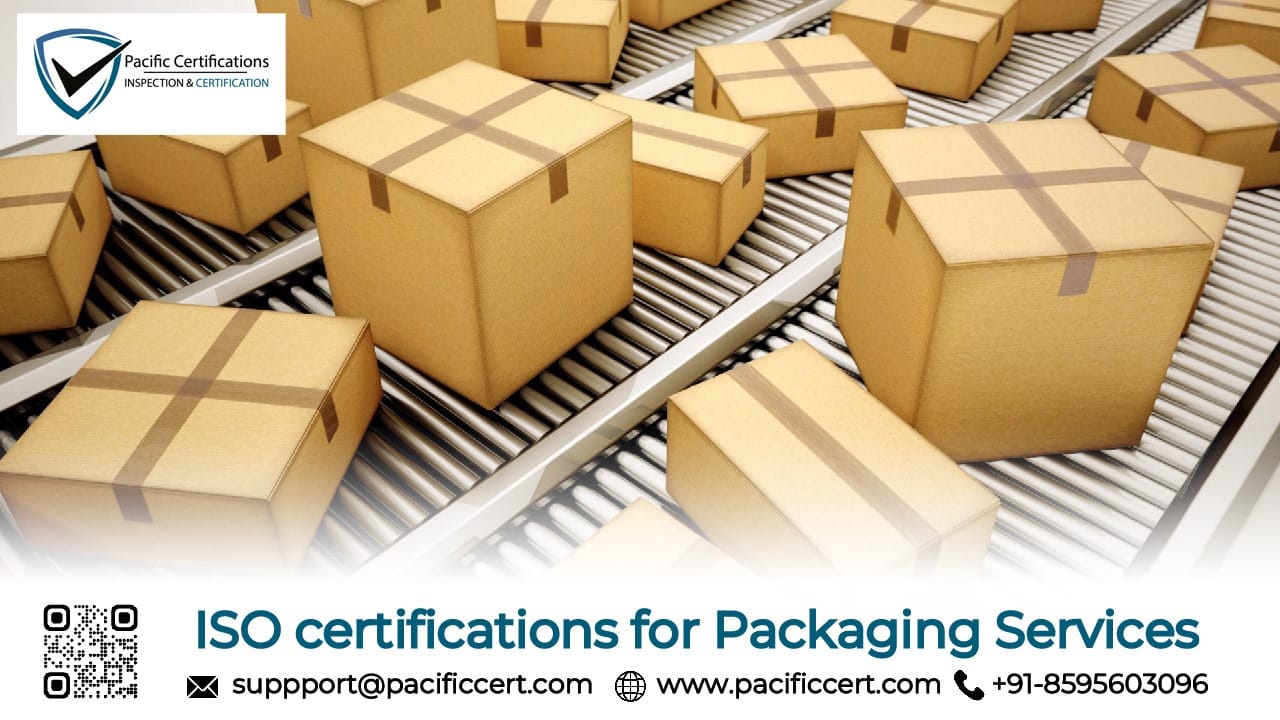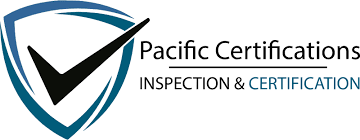ISO Certifications for Packaging Services, Requirements and Benefits

Introduction
Packaging services sit at the heart of modern supply chains. Every product, whether food, medicine, electronics, or consumer goods depends on packaging to keep it safe until it reaches the end user. In recent years, expectations from this industry have grown. Clients want packaging that is durable and cost-effective, but also sustainable and compliant with increasingly strict regulations.
The global packaging services market has crossed USD 300 billion in value and continues to expand with e-commerce, rising food exports, and stricter rules on recyclable materials. This growth comes with new responsibilities. Companies are now judged not only on speed and design but also on how they handle hygiene, waste, and environmental impact. ISO certifications provide packaging firms with a credible way to show that they have systems in place to manage these challenges.
For help with ISO certification audits for your packaging business, contact [email protected].
Packaging is more than wrapping a product, it protects, preserves, and communicates trust. ISO certifications give packaging companies a way to prove that their work meets high standards of safety, quality, and responsibility.
Quick Summary
ISO certifications help packaging companies prove that their operations are safe, reliable, and environmentally responsible. The most important standards include ISO 9001 (quality), ISO 22000/HACCP (food safety), ISO 14001 (environment), and ISO 45001 (health & safety). Certification builds trust with clients and creates opportunities with global brands that require accredited suppliers.
Applicable ISO standards for Packaging Companies
Below is an overview of relevant ISO certifications and their applicability to packaging services:
ISO 9001: Quality Management Systems
ISO 9001 focuses on meeting customer expectations and delivering customer satisfaction. It emphasizes continuous improvement and the effective application of a quality management system (QMS).
ISO 14001: Environmental Management Systems
This standard is relevant for companies that are committed to managing their environmental impact. For packaging services, this involves minimizing waste and improving resource efficiency.
ISO 45001: Occupational Health and Safety Management Systems
Given the physical nature of packaging services, this standard is crucial for ensuring a safe working environment. It helps companies to systematically improve employee safety, reduce workplace risks, and create safer working conditions.
ISO 15378: Primary Packaging Materials for Medicinal Products
Specifically designed for suppliers of primary packaging materials for medicinal products, this standard integrates the principles of ISO 9001 and adds specific requirements for the pharmaceutical sector.
ISO 22000: Food Safety Management
For packaging companies involved in the food and beverage sector, ISO 22000 focuses on food safety management. It covers all organizations in the food chain, including those that package food products.
Click here to find out more applicable standards to your industry
What are the general requirements of ISO Certifications for Packaging Services?
Below are the key ISO standards applicable and their requirements:
General requirements:
Setting clear policies for quality, safety, and environmental care.
Carrying out risk assessments — for example, contamination in food packaging or injuries in production plants.
Writing down standard procedures for how materials are sourced, handled, processed, and delivered.
Providing training to staff on safety, hygiene, and proper use of equipment.
Keeping records of production runs, inspections, and incidents so that performance can be tracked.
Reviewing performance regularly through audits and management checks.
What are the specific requirements of ISO Certifications for Packaging Services?
ISO 9001: Quality Management System (QMS) Requirements
Implement a Quality Management System to ensure consistent product quality and operational efficiency across packaging processes.
Set clear quality objectives related to material selection, packaging design, and customer satisfaction.
Establish procedures for monitoring and controlling production quality, including regular inspections and testing.
Conduct internal audits to assess compliance with QMS standards and identify opportunities for improvement.
Develop corrective action plans to address defects or nonconformities in packaging products or processes.
ISO 14001: Environmental Management System (EMS) Requirements
Establish an Environmental Management System to monitor and reduce the environmental impact of packaging materials and production processes.
Identify and control environmental aspects such as waste generation, energy use, and emissions during packaging production.
Set environmental goals, such as reducing waste or adopting recyclable packaging materials.
Ensure compliance with environmental regulations and standards.
Regularly audit environmental performance and continuously improve sustainability practices.
ISO 45001: Occupational Health and Safety Management System (OHSMS) Requirements
Implement an Occupational Health and Safety (OHS) management system to ensure a safe working environment for employees in packaging production.
Identify workplace hazards, including risks associated with machinery, chemicals, or manual handling in packaging processes.
Develop and enforce safety procedures, such as equipment handling protocols and emergency response plans.
Provide regular safety training for employees and contractors.
Conduct audits to monitor safety performance and ensure compliance with OHS regulations.
ISO 22000: Food Safety Management System (FSMS) (for food packaging companies) Requirements
Implement a Food Safety Management System (FSMS) to ensure that packaging materials used for food products meet hygiene and safety standards.
Perform hazard analysis and risk assessments to identify potential contamination risks.
Develop control measures, including sanitation and packaging material quality checks.
Ensure traceability of materials used in food packaging to maintain product safety.
Conduct regular audits to ensure compliance with food safety regulations and continuously improve packaging safety.
Tip: Companies in Packaging sector should begin with ISO 9001 because it builds a base for quality and documentation. Those serving food and pharmaceutical clients often add ISO 22000 or HACCP as the next step. With sustainability becoming a global priority, more firms are also adopting ISO 14001 to prove their commitment to reducing waste.
What are the benefits of ISO Certifications for Packaging Services?
For packaging companies, certification has both immediate and long-term value:
It gives clients confidence that packaging will meet required standards every time.
Workers benefit from a safer workplace with clear procedures and protective measures.
Environmental standards like ISO 14001 help companies reduce waste and manage resources better.
Food and pharma certifications ensure that products are kept safe throughout the packaging process.
Many large buyers and tenders now require ISO certification, so it opens doors to new contracts.
Having proper systems in place makes it easier to pass audits and regulatory inspections.
The packaging industry is undergoing a major shift toward sustainability. Consumers are demanding recyclable and biodegradable options, and regulators are banning or restricting single-use plastics in many regions. Surveys show that more than 60% of global buyers prefer eco-friendly packaging when given a choice.
E-commerce is also driving change. With millions of parcels shipped daily, companies need packaging that is not only durable but also optimized for logistics. At the same time, food safety rules are getting stricter, which is why certifications such as ISO 22000 and HACCP are being increasingly adopted by packaging suppliers worldwide.
Digitalization is another emerging trend. From QR codes on packaging for traceability to IoT systems in warehouses, packaging firms are handling more data than ever before — which makes ISO/IEC 27001 relevant in ways it wasn’t a decade ago.
How Pacific Certifications can help?
Pacific Certifications is accredited by ABIS, we work with packaging companies across industries to provide auditing and certification services. Whether your business supplies cartons for e-commerce, bottles for pharmaceuticals, or custom packaging for food exports, we can certify your systems against the ISO standards that matter most to your clients.
Contact Us
If you need support with ISO certification for your Packaging business, contact us at [email protected] or +91-8595603096.
Author: Sony
Read More at: Blogs by Pacific Certifications

